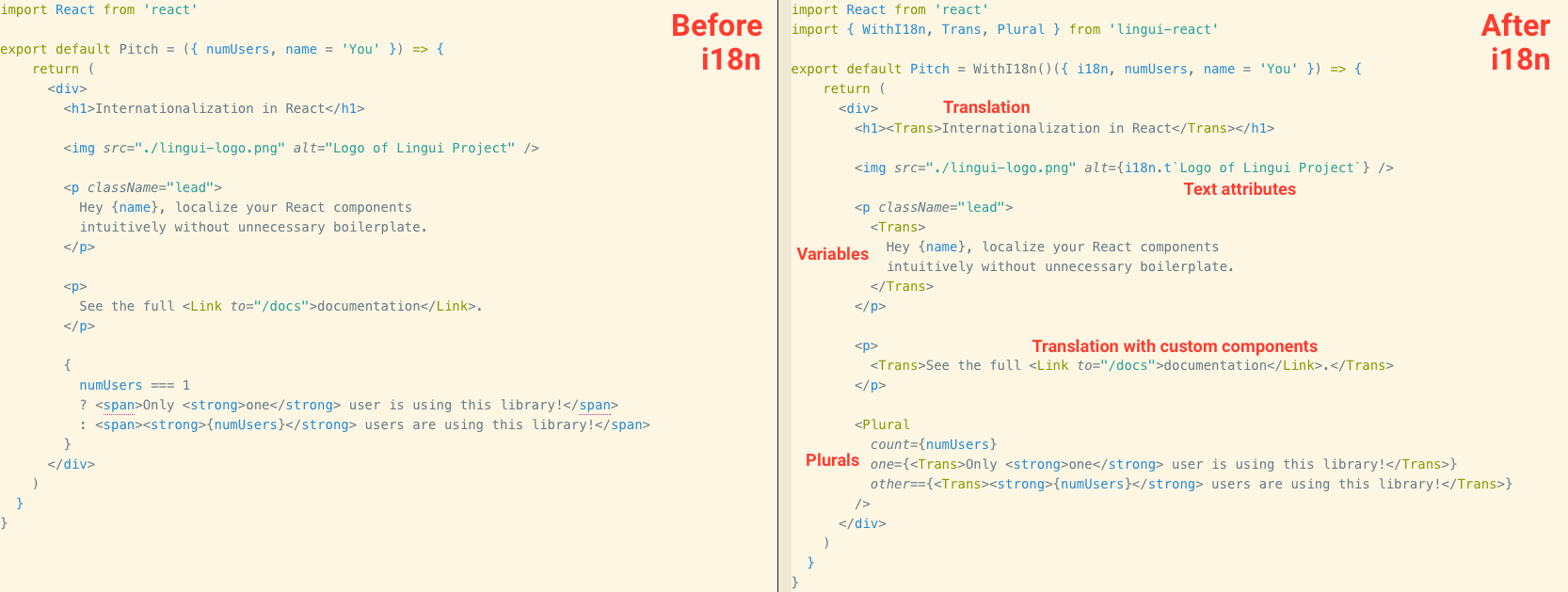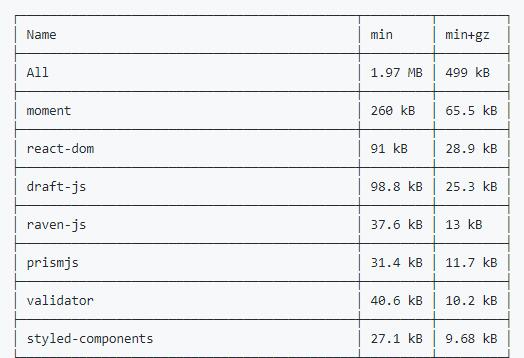retalk
Retalk is a best practice for Redux. just simple, small, smooth, and smart.
It helps you write Redux easy and clear than ever before, forget about action types, action creators, no more annoying boilerplate code. On top of that, it even supports async import model and automatically loading state handling.
Features
- ?️ Simplest Redux practice: only
stateandactionsneed to write, if you like. - ? Just two API:
createStoreandwithStore(optional helper), no more annoying concepts. - ⛵️ Async import model:
() => import()for code splitting andstore.addModelfor model injecting. - ⏳ Automatically
loadingstate: only main state you need to care.
Getting started
Install with yarn:
yarn add retalk
Or with npm:
npm install retalk
Step 1: Store
store.js
import { createStore } from 'retalk';
import count from './count';
const store = createStore({
count,
});
export default store;
Step 2: Model
count.js (state, actions)
const count = {
state: {
count: 0,
},
actions: {
add() {
this.setState({ count: this.state.count + 1 });
},
async addAsync() {
await new Promise(resolve => setTimeout(resolve, 1000));
this.add();
},
},
};
export default count;
model brings state, reducers [optional], and actions together in one place.
In an action, Use this.state to get state, this.setState to update state, use this.actionName to call other actions. Just like the syntax in a React component.
How to reach other models? with the namespace, e.g. this.modelName.state、this.modelName.reducerName,this.modelName.actionName
Umm... want some more? but that's all. Redux model is just simple like this, when you're using Retalk.
Step 3: View
App.js
import React from 'react';
import ReactDOM from 'react-dom';
import { Provider, connect } from 'react-redux';
import { withStore } from 'retalk';
import store from './store';
const Count = ({ loading, count, add, addAsync }) => (
<div className={loading.addAsync ? 'loading' : 'done'}>
The count is {count}
<button onClick={add}>add</button>
<button onClick={addAsync}>addAsync</button>
</div>
);
const App = connect(...withStore('count'))(Count);
ReactDOM.render(
<Provider store={store}>
<App />
</Provider>,
document.getElementById('root'),
);
If an action is async, you can get loading.actionName state to use for loading if you like.
Well, only 3 steps, A simple Rematch demo is here.
What's More?
Use reducers
I want different
reducers, not onlythis.setStateto update state...
Ok... below is what you want!
count.js (state, reducers, actions)
const count = {
state: {
count: 0,
},
rerucers: {
add(state) {
// Need to return new state
return { ...state, count: state.count + 1 };
},
},
actions: {
async addAsync() {
await new Promise(resolve => setTimeout(resolve, 1000));
// this.setState(); ERROR: NO `this.setState` HERE!
this.add(); // YES
},
},
};
export default count;
If reducers exists, setState will disappear in action's context, you can only use reducers like add to update state.
What's in action's this context?
export const count = {
actions: {
add() {
// OWN
// this.state
// this.setState (`reducers` ☓)
// this.reducerName (`reducers` √)
// this.actionName
// OTHER
// this.modelName.state
// this.modelName.reducerName (modelName `reducers` √)
// this.modelName.actionName
},
},
};
Async import
createStore
// 1. Static import (store: [Object])
const store = createStore({
count,
});
// 2. Async import (store: [Promise])
const store = createStore({
count: () => import('./count'),
});
// 3. Even mixin them! (store: [Promise])
const store = createStore({
count,
modelName: () => import('./modelName'),
});
If async import model in createStore, then in entry file you need to write like this.
import asyncStore from './store';
const start = async () => {
const store = await asyncStore;
ReactDOM.render(
<Provider store={store}>
<App />
</Provider>,
document.getElementById('root'),
);
};
start();
store.addModel
Actually, above is just code splitting when initialize store, what we really want is when enter a page, then load page's model, not load them together when initialize store. We need some help to achieve this goal.
You can use code splitting libraries like react-loadable and loadable-components to dynamic import page component and model together.
Here is a loadable-components example.
import React from 'react';
import loadable from 'loadable-components';
const AsyncPage = loadable(async store => {
const [{ default: Page }, { default: count }] = await Promise.all([
import('./Page'),
import('./count'),
]);
store.addModel('count', count);
return props => <Page {...props} />;
});
Customize state and methods
You can just pass mapStateToProps and mapDispatchToProps to connect when need some customization, without using withStore.
const mapState = ({ count: { count } }) => ({
count,
});
const mapMethods = ({ count: { add, addAsync } }) => ({
add,
addAsync,
});
// As we know, first param to `mapDispatchToProps` is `dispatch`, `dispatch` is a function,
// [mapDispatchToProps](https://github.com/reduxjs/react-redux/blob/master/docs/api.md#arguments)
// but in above `mapMethods`, we treat it like it's an object.
// Yes, Retalk did some tricks here, it's `dispatch` function, but bound model methods on it!
const App = connect(mapState, mapMethods)(Count);
Automatically loading state
Retalk will check if an action is async, then automatically add a loading [object] state to every model, here is an example.
// In actions
const count = {
actions: {
actionA() {},
actionB() {},
async actionC() {},
actionD() {},
async actionE() {},
async actionF() {},
},
};
// In count's state
state.loading = {
actionC: false,
actionE: true, // If in process
actionF: false,
};
We recommend to use async / await syntax to define an async action.
API
createStore
const models = {
modelA: { state: {}, actions: {} },
modelB: () => import('./modelB'),
};
createStore(models);
createStore(models), models must be an object.
modelA or modelB is model, model must be an object or an () => import() function.
If model is an object, state and actions must in it, and must all be objects. reducers is optional, if reducers exists, reducers must be an object too.
withStore
// one
withStore('count');
// more
withStore('count', 'modelName', ...);
Use withStore(name) to pass whole model to a component, param is model's name [string], you can pass more than one model.
withStore must be passed in rest parameter syntax to connect.
connect(...withStore('model'))(Component);
store.addModel
store.addModel('list', module.default);
Use store.addModel(name, model) to inject async model to store after imported. name [string] is model's namespace in store, and model is an object with state, reducers [optional], and actions in it.
this.setState
// Set own state
this.setState(nextState);
// Set other model's state
this.setState('modelName', nextState).
Just like this.setState function in a React component (different when set other model's state).
nextState must be an object, it will be merge with the previous model state.
this[reducer]
// Call reducer in actions or component
this.plus(1, 2, 4);
// Params received in reducer
plus(state, a, b, c) {
// a: 1, b: 2, c: 4
return { ...state, sum: state.sum + a + b + c };
}
this[action]
// Call action in other actions or component
this.getSum(1, 2, 4);
// Params received in action
getSum(a, b, c) {
// a: 1, b: 2, c: 4
const { sum } = this.state;
this.setState({ sum: sum + a + b + c });
}





